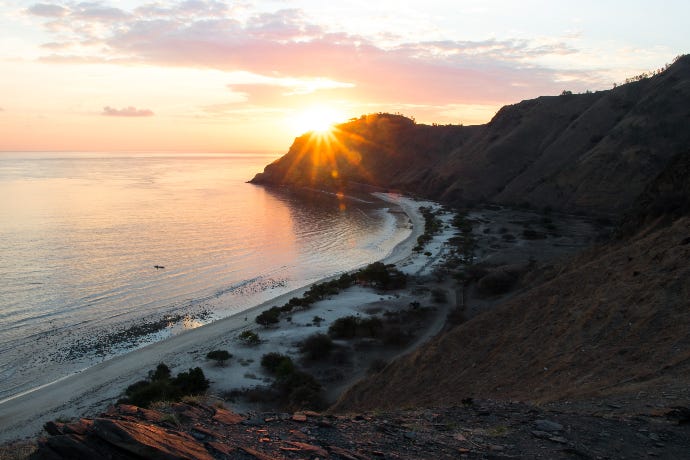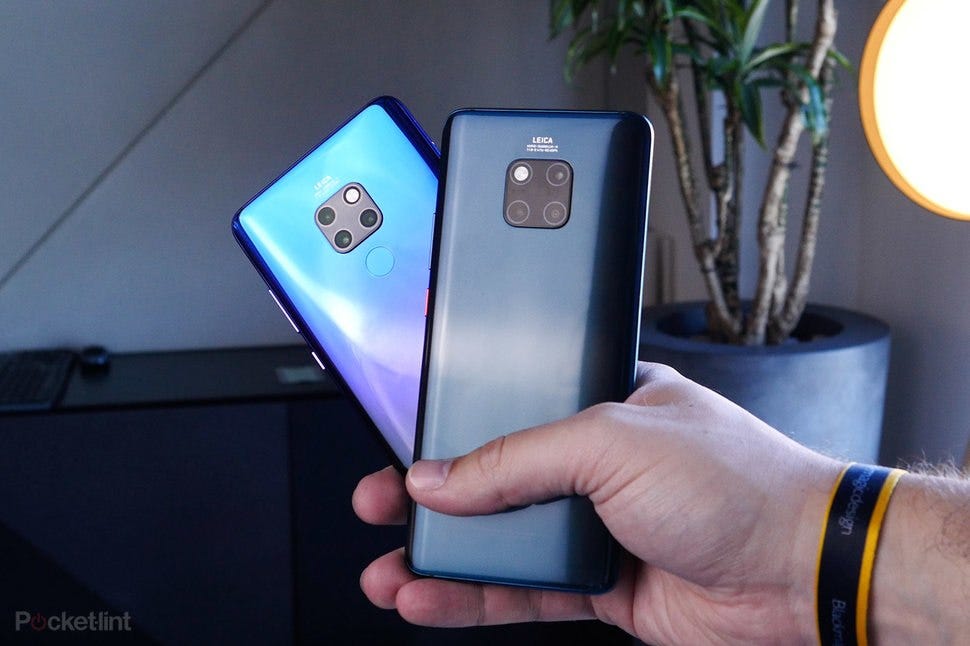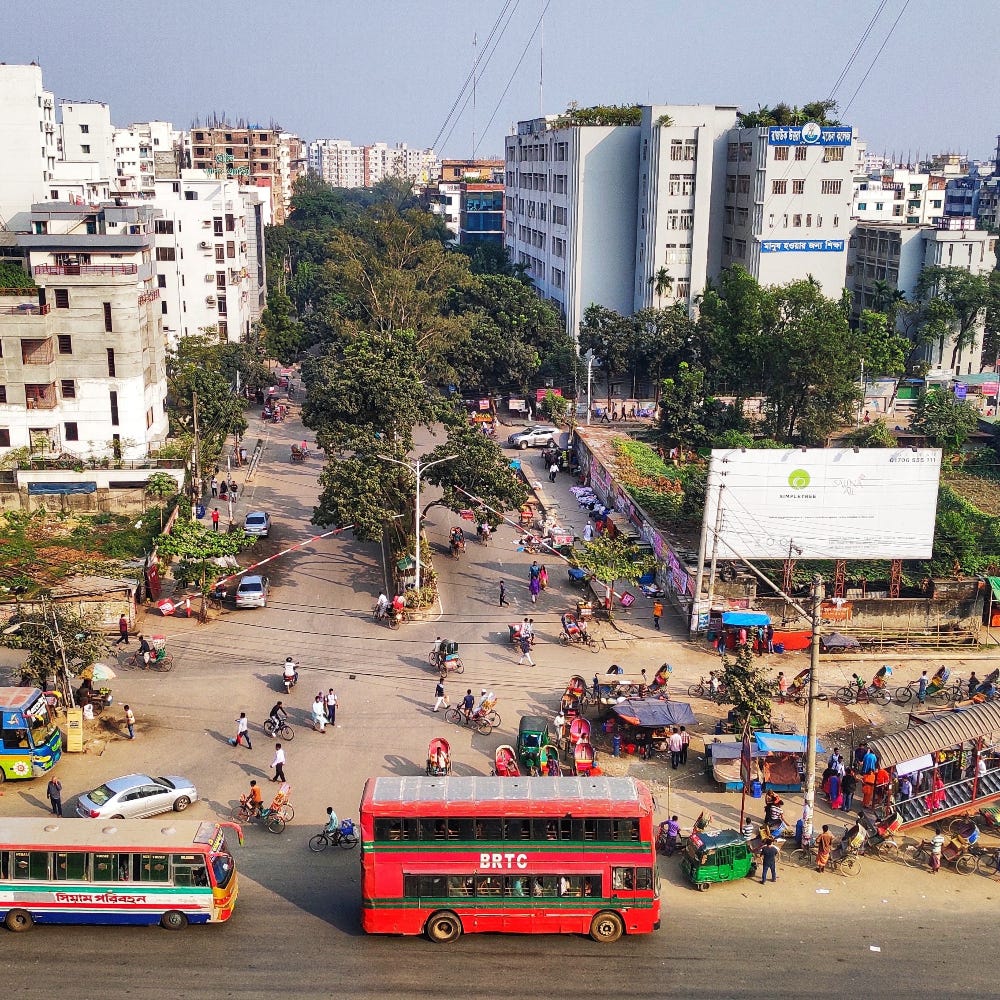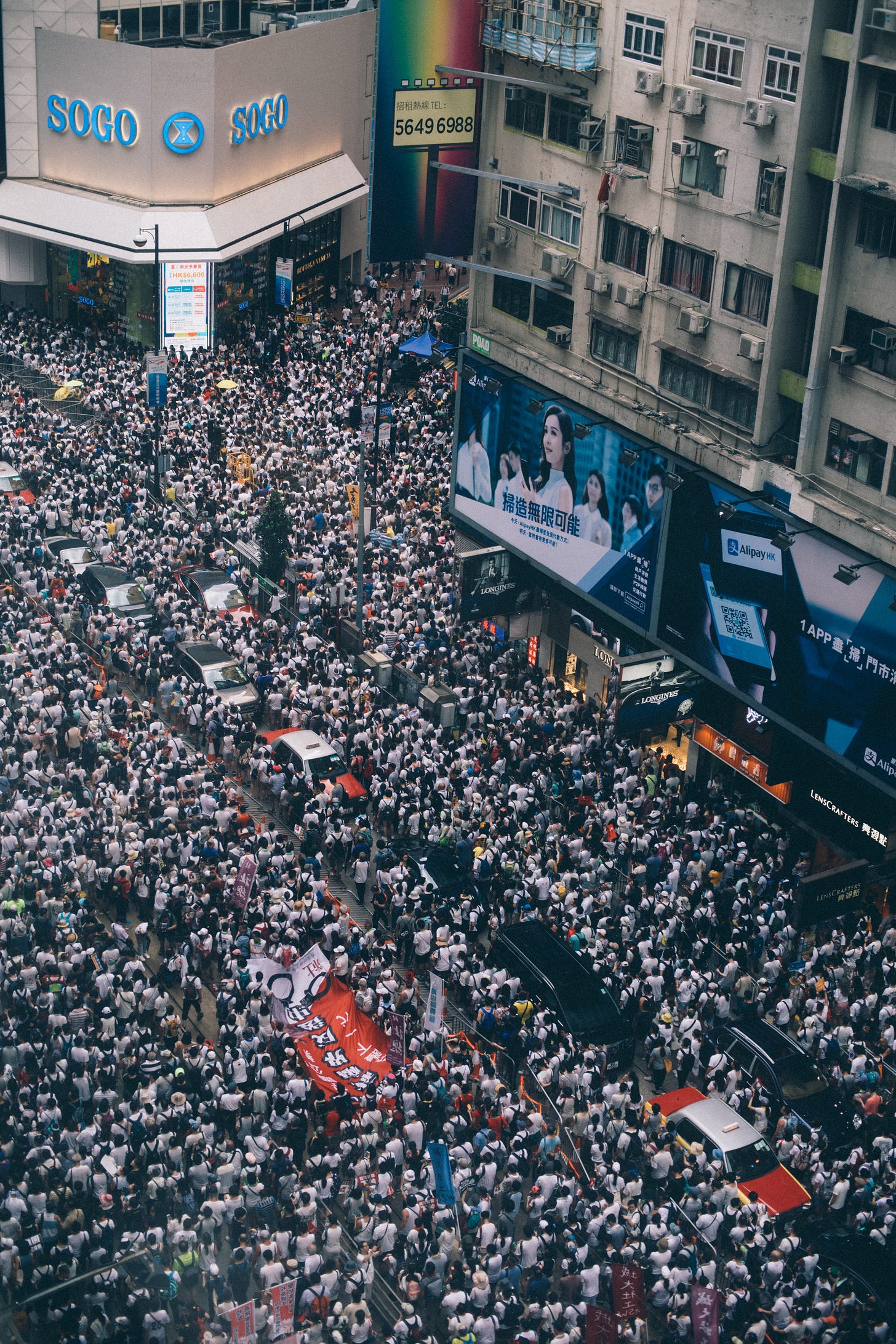A figure of the Cultural Revolution dies
The China-US trade war, Hong Kong and West Papua all saw significant news
I recently stumbled upon some creative writing I produced about 7 years ago. There was some good, and a lot of bad.
In a strange way, it helped my self-confidence because I have clearly improved as a writer (thank goodness). I also have managed to inject more joy and humour in my stories which is a positive development.
On the flip side, the stories had a rawness that I am not entirely sure I can recapture. I don’t think I miss it, it comes off forced and unrealistic, but it was intriguing to remind myself that these plot lines once existed in my head.
The story that holds up the best is a character introduction of a barista.
Most importantly, it was motivation to re-start journaling. It is interesting to read words from a previous life. It’s time to start memorialising this lifetime.
-Kevin
Quote of the Week: “It is believed he had been receiving treatment there since April.”
-Media reports covering the death of Robert Mugabe, who had been in Singapore receiving medical treatment.
Asia
U.S. and China Agree to Resume Trade Talks, Sending Markets Higher

What Happened: The next round of trade negotiations are set for early-October. It will probably happen after the October 1 CCP anniversary date to avoid any political sensitivities torpedoing a potential deal.
I am not optimistic on the trade war coming to an end this autumn. Trump seems to be calculating that the Trade War gives him some popularity points heading into 2020. I don’t agree with the Trade War, but I do agree with the logic that it makes him more popular.
That being said, the trade war is clearly dragging Wall Street, so Trump’s desire to have a booming stock market might outweigh political points from “taking on China”.
What to watch: China is planning to take advantage of Hurricane Dorian and invest millions of dollars in rebuilding the Bahamas. Will the US tolerate this so close to home?
Indonesia restores internet access in parts of West Papua

What Happened: It seems as if the situation in West Papua has calmed down, at least for now. The government is restoring internet to most parts of the region — except for the places that saw the most aggressive violence.
The worry is that Indonesia doesn’t seem interested in solving the problems that created the protests in the first place (endemic systematic racism). This creates the concern that the protests might go away for a little bit, and then flare up again.
Reflections on the twentieth anniversary of Timor-Leste’s independence referendum

It could be argued that the independence movement in Timor-Leste was the last war in Southeast Asia. By the time of independence in 2002, the conflict is estimated to have taken 100,000 lives, whether via killings, disease or hunger.
As this essay points out, Timor-Leste is still struggling to build its future. It is a moderately poor country that suffers from a culture of corruption (much like its former motherland of Indonesia).
That being said, for the author, being a sovereign nation was worth the pain.
Interesting read: How American realpolitik strategy resulted in Washington shrugging its shoulders at Timor-Leste violence.
Singapore PM Lee Hsien Loong asks sociopolitical site The Online Citizen to remove allegedly defamatory article or face legal action

What Happened: This will create some good drama over the coming weeks. The Online Citizen (TOC) is finding itself in the crosshairs after it reported a Facebook post from Lee Hsien Loong’s estranged sister. It goes back to the Lee family dispute over the future of Lee Kuan Yew’s former home.
The Prime Minister is claiming the allegations are false and defamatory. The Editor of The Online Citizen is refusing to take down the article. We have a stand-off!
The TOC is saying that they did not create the accusations, they simply reported what the sister said.
Prime Minister Lee is threatening to sue, and TOC is saying “bring it on, even if it destroys us”. Now the question is whether the Prime Minister will follow-through with his threats.
Huawei plans high-end phone launch under cloud of Google ban

What happened: This will be the most watched global phone launch of the holiday season. Why? Because it is the first generation of Huawei phones released after Google stopped allowing the phone maker to use its Android operating system.
What is remarkable about this news update is that it is unclear what operating system Huawei will use — indicating that the company itself may not know.
When the ban was first announced back in March, the company announced it had its own operating system, called HarmonyOS in the works. Even if Huawei managed to build Harmony in six months, it will surely be disappointing compared to Android, which has had years to iron out the wrinkles.
Rodrigo Duterte finally fires favourite official Nicanor Faeldon after release of drug offenders

What Happened: Nicanor Faeldon, the director of the Philippines’ Bureau of Corrections, was fired over a plan to release a former Mayor from prison. The ex-Mayor, named Antonio Sanchez, was sentenced to 360-years in prison for a gruesome crime that I would rather not repeat in Aseophile.
It turned out that Faeldon had been using his position of power to facilitate a mass release from Philippines prisons. This caused a controversy in the Philippines, especially considering Duterte’s reputation as being an anti-crime strongman.
Duterte’s spokesperson, Salvador Panelo, is also in hot water because he was involved in writing the endorsement for clemency for Sanchez.
Bangladesh bans mobile phone access in Rohingya camps

What Happened: Citing increasing crime, Bangladesh has cracked down on Rohingya refugee camps by banning the use of SIM cards.
Cynics think that it is meant to kill a repeat of a mass gathering to mark the 2-year anniversary of Myanmar’s violent Rohingya expulsion. Police say they need to crack down on illegal trafficking, especially in methamphetamine pills. This is a case where both sides are probably correct.
While Bangladesh is doing taking the noble cause from a macro perspective, it is also a poor nation and would inevitably struggle to manage 700,000 people living in squalor.
Related: While Rakine gets the most attention, large parts of Myanmar are subjected to ethnic unrest. China wants to make developing Myanmar a core part of its geopolitical plan. Now Beijing is finding itself scolding Myanmar to, “Figure this out so we can start building roads.”
Indonesians could soon be jailed for insulting the president, if colonial-era law is resurrected

What Happened: One reality of 2019 politics is that many countries around the world are ruled by extremely sensitive individuals.
Brazilian President Bolsonaro refused millions of dollars to aid for the Amazon fires because he had his feelings hurt. Duterte lashes out aggressively whenever someone criticises him and Trump is currently obsessing over a fake map “controversy”. Singapore’s Lee Hsien Loong appears ready to sue an average citizen.
Now, it seems, Indonesia is joining the party, using colonial laws to potentially send people to prison for slandering Jokowi.
Kevin’s Share
Will Manny Pacquiao succeed where Floyd Mayweather failed? The Filipino boxer hopes PAC Token cryptocurrency will be a knockout
I wrote an article timed around Manny Pacquiao’s launch of his own cryptocurrency. The goal of the coin is to provide a tool to buy merchandise and interact with the boxing star on social media.
Towards the bottom is a listicle of other celebrity ventures into cryptocurrency. My personal favourite is the AKoin (from the pop star Akon). It hasn’t taken off yet, but if AKoin works it would make a major positive impact in Africa.
Some Levity
Existential Dread in the Animal Kingdom
A funny cartoon photo essay. My favourite is the ant.
Long Read

Nie Yuanzi, Whose Poster Fanned the Cultural Revolution, Dies at 98
In 1966, Nie Yuanzi created a large poster denouncing the Communist Party secretary of Peking University, and in doing so fanned the flames of the Cultural Revolution. Nie worked at Peking University, and the accusations were personally praised by Mao Zedong.
Once Mao praised the “Big Character Poster” (which, ironically, is full of small characters) the life of Nie became a world wind. She experienced the heights of power in the cultural revolution, but also spent a year in jail when Deng Xiaoping became the leader of China.
Her story is an interesting one. She clearly is full of guilt and regret, but she also caused a lot of hurt to a lot of people.
One NBA Post
Lakers' Alex Caruso gets 'random' NBA drug test after hilariously photoshopped workout pics go viral

Alex Caruso, who is a bit of an NBA darling because he looks like a 45-year-old white man playing in the NBA, will only see his popularity rise after this latest update.
Caruso took a shirtless picture of himself, and some enterprising individual decided to use some photoshop to bulk him up.
Caruso was almost immediately tested by the NBA for steroids. Legendary.
Hong Kong
Hong Kong Chief Executive Carrie Lam has officially withdrawn the extradition bill that created the city’s most pressing political crisis since 1967.
The day before, Reuters published the biggest scoop of the movement by releasing a tape of Carrie Lam telling a private meeting that she would quit if she were allowed. Say what you will about Lam, but give her credit for this: she is keenly aware of how despised she has become in Hong Kong.
While the withdrawal is definitely a positive development, it also seems to be too little too late (protesters called it, “putting a band-aide on rotting flesh”).
I think a lot of protesters would consider ramping down the movement if significant police reforms were undertaken. This means firing everyone in senior leadership positions, it means setting up an independent enquiry and it means arresting officers who are video-taped using extreme force.
This would also require a long-term truce from the protesters. Reforms of any meaningful level would take months. No organisation could manage significant internal reforms and the protests at the same time.
The past week has been ridiculous. The police nearly killed a guy in an MRT station and then were video taped tackling secondary school students as if they just robbed a convenience store. Protesters responded on Friday night by wreaking chaos throughout the MRT line — they are seeking the public release of video tapes that they claim show police brutality.
A week ago, police also sprayed protesters with blue dye, a tactic that is not meant to disperse protesters but rather to arrest them afterwards — much like how an ink bomb explodes when people try to steal clothes from retailers.
At this moment, I think the fundamental political crisis in Hong Kong is a city that views police as oppressors, not protectors. Nothing significant matters until that reality is fixed.



